Triathlete Nutrition: What to Eat to Maximize Performance

Nutrition is crucial in any sport but for a multi-faceted discipline like triathlon, which tests your swimming, cycling and running abilities, it's especially important.
Regardless of the distance or challenge of your next triathlon, nutrition is fundamental in order to achieve your best performance.
Broadly speaking, triathlete nutrition can be grouped in two different stages: training and competition.
When focusing on an endurance athlete's diet, it is not about losing weight, but having the correct muscle composition and a low body fat index. It is always advisable to visit a nutritionist to conduct personalized exams to know exactly where you are at and what is required.
In the preparation for any competition, a key element is to always start with a good meal. It's important to eat enough, starting with breakfast, and to eat something before training. Also keep tabs on your caloric consumption throughout training as it's common for athletes to finish the day with a caloric deficit in fear of gaining weight.
HYDRATION IS VITAL
Unless you eat enough, the cost of that deficit will be high. Some of the signs can be a lack of energy in training with poor results and general discontent. On the other hand, a good nutrition of around 800-1000 calories a day, will provides you with quick recoveries, fewer cravings and an increase in performance.
Carbohydrates are a frequent source of energy for triathletes, with competitors of all levels favoring slow absorbing carbs (bread, pasta, rice, potato, legumes). At the same time, it is important to decrease your intake of fatty foods. The dietary objective is to provide enough energy and nutrients to maximize the exercise performed by the athlete. In addition, supplementation should be evaluated in the face of competition.
Hydration, in the form of water and isotonic drinks, should never be neglected and is absolutely vital to performance and the athlete's wellbeing. How much you will need varies from one person to the next based on factors such as sweat rate, activity levels, weather or the size of the athlete. A basic rule of thumb is to pay close attention to your thirst and make sure to alternate water with electrolyte-drinks low in sugar to replenish salts and minerals.
Also consider the nutrition you consume while training, frequently in the form of gels and bars. At moderate or high-intensity sessions of under two hours, a unique source of carbohydrates will suffice (i.e. glucose). For sessions that last more than two or three hours, an intake of up to 90 grams per hour is recommended, ideally from a product with multiple carbohydrate sources. At significantly longer durations (over 10 hours) apply lower doses.
CARB LOAD BEFORE RACE DAY
These same principles apply for race day, where there will be several factors that must be taken into account - from the intake of food to the importance of being well hydrated. Get these quantities wrong and you could feel stomach pains or fatigue due to lack of sugars. That's why it's important to test your race nutrition several times during training.
In the days prior to your race, it's recommended to increase your carbohydrate load. Increase the contribution of rich foods and lower the consumption of fats and fibers, avoiding fatty meats and fish, and fruits and vegetables. On the day of the race, it's important not to skip breakfast as it generates a deposit of essential glycogen to compete. Hydrate well before the race. Nothing should really change that day, so it's important not to try anything new.
As a final disclaimer, everyone is different when it comes to nutrition and there is no silver bullet. While some people will swear by a Keto diet, others will profess the way of Paleo and others will stand with carbs. If you really want to understand what's best for you, there's nothing better than visiting a local physician and nutritionist to explore what is best for you.

Nutrition is crucial in any sport but for a multi-faceted discipline like triathlon, which tests your swimming, cycling and running abilities, it's especially important.
Regardless of the distance or challenge of your next triathlon, nutrition is fundamental in order to achieve your best performance.
Broadly speaking, triathlete nutrition can be grouped in two different stages: training and competition.
When focusing on an endurance athlete's diet, it is not about losing weight, but having the correct muscle composition and a low body fat index. It is always advisable to visit a nutritionist to conduct personalized exams to know exactly where you are at and what is required.
In the preparation for any competition, a key element is to always start with a good meal. It's important to eat enough, starting with breakfast, and to eat something before training. Also keep tabs on your caloric consumption throughout training as it's common for athletes to finish the day with a caloric deficit in fear of gaining weight.
HYDRATION IS VITAL
Unless you eat enough, the cost of that deficit will be high. Some of the signs can be a lack of energy in training with poor results and general discontent. On the other hand, a good nutrition of around 800-1000 calories a day, will provides you with quick recoveries, fewer cravings and an increase in performance.
Carbohydrates are a frequent source of energy for triathletes, with competitors of all levels favoring slow absorbing carbs (bread, pasta, rice, potato, legumes). At the same time, it is important to decrease your intake of fatty foods. The dietary objective is to provide enough energy and nutrients to maximize the exercise performed by the athlete. In addition, supplementation should be evaluated in the face of competition.
Hydration, in the form of water and isotonic drinks, should never be neglected and is absolutely vital to performance and the athlete's wellbeing. How much you will need varies from one person to the next based on factors such as sweat rate, activity levels, weather or the size of the athlete. A basic rule of thumb is to pay close attention to your thirst and make sure to alternate water with electrolyte-drinks low in sugar to replenish salts and minerals.
Also consider the nutrition you consume while training, frequently in the form of gels and bars. At moderate or high-intensity sessions of under two hours, a unique source of carbohydrates will suffice (i.e. glucose). For sessions that last more than two or three hours, an intake of up to 90 grams per hour is recommended, ideally from a product with multiple carbohydrate sources. At significantly longer durations (over 10 hours) apply lower doses.
CARB LOAD BEFORE RACE DAY
These same principles apply for race day, where there will be several factors that must be taken into account - from the intake of food to the importance of being well hydrated. Get these quantities wrong and you could feel stomach pains or fatigue due to lack of sugars. That's why it's important to test your race nutrition several times during training.
In the days prior to your race, it's recommended to increase your carbohydrate load. Increase the contribution of rich foods and lower the consumption of fats and fibers, avoiding fatty meats and fish, and fruits and vegetables. On the day of the race, it's important not to skip breakfast as it generates a deposit of essential glycogen to compete. Hydrate well before the race. Nothing should really change that day, so it's important not to try anything new.
As a final disclaimer, everyone is different when it comes to nutrition and there is no silver bullet. While some people will swear by a Keto diet, others will profess the way of Paleo and others will stand with carbs. If you really want to understand what's best for you, there's nothing better than visiting a local physician and nutritionist to explore what is best for you.
SEE WHAT CUSTOM APPAREL LOOKS LIKE
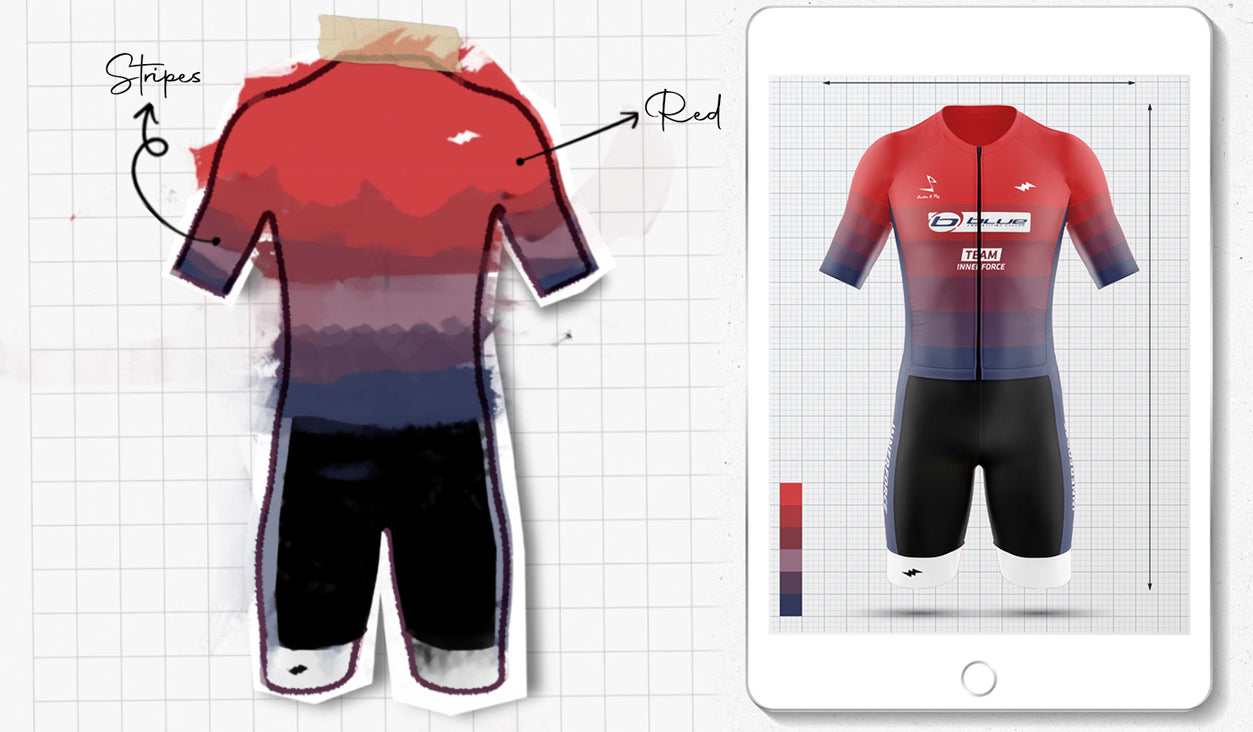
GEAR UP
MORE FROM THE BLOG
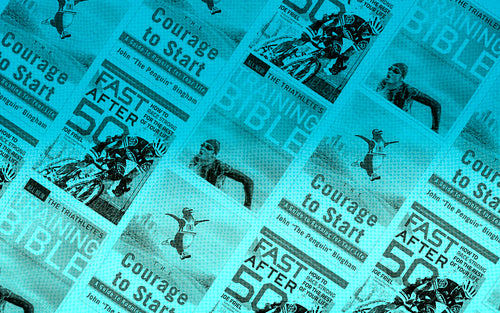
The Essential Reading List for Aspiring Triathletes
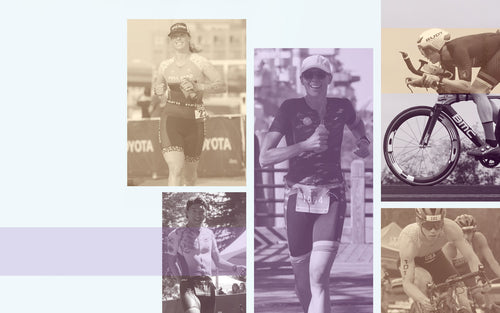
The most challenging competitions in the world: A guide to the toughest races on the planet
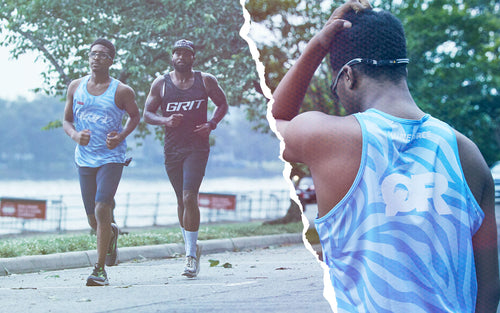
How to Keep Young Athletes Motivated in Their Training Program
Let’s admit it: many athletes struggle to find motivation for their training. Experts from the University of London and the National...
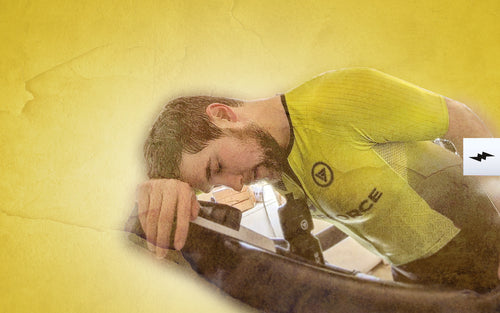
How To Adapt Your Training When Things Go Wrong
It is pretty easy nowadays to find the perfect training plan online for whatever event you have coming up. The...



